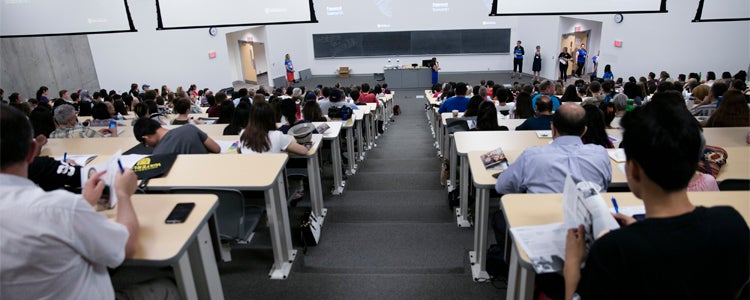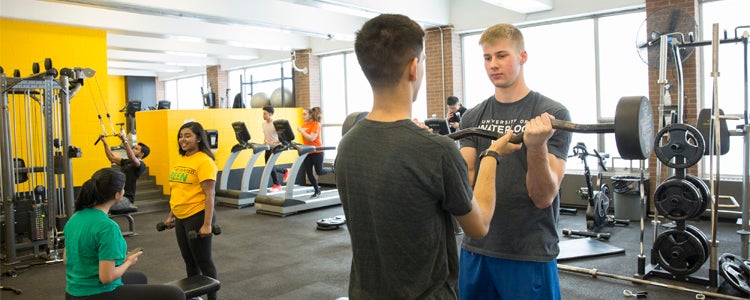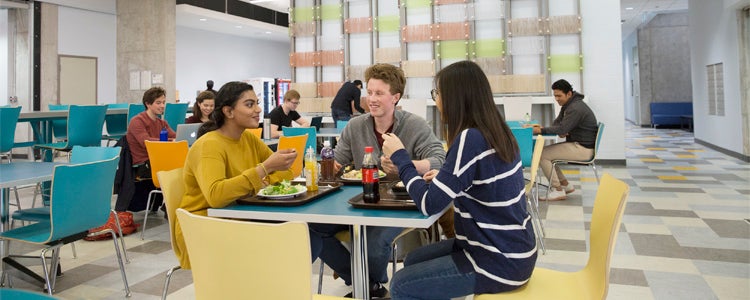
Going to university is a life-changing experience. Not only will you gain the knowledge and skills of the subject you've chosen to study, but you'll also grow as a person, set yourself up for future success, and make memories to last a lifetime.
Universities have existed for nearly a thousand years and are hubs of research and of learning. They're where the present and future are being created. But they can be complex and confusing if you're not familiar with them. So how do they work? Read on for an overview!
Getting started: applying
At most universities, admission is competitive. That means you need to apply and be accepted based on your grades and perhaps interviews, portfolios, or personal essays depending on the program. Universities admit students based on certain criteria ("admission requirements") to ensure that the students they admit are well suited to succeed and graduate. The requirements for admission vary greatly by university and by type of program.
- Guide to the university admissions process
- Waterloo's programs
- Learn the lingo. Check out the guide to university terminology
Types of university degrees
Undergraduate degrees
These are what you study after completing high school and usually take three to five years to complete. Examples include Bachelor of Arts (BA), Bachelor of Science (BSc), and Bachelor of Environmental Studies (BES).
Once you finish, you can start your career or continue your education, perhaps with a professional or graduate degree.
Professional degrees
Medicine, law, pharmacy, optometry, teaching, social work are examples of professional degrees that require at least two or three years in an undergraduate program before applying.
Graduate degrees
There are two types of graduate degrees. A Master's degree, which you can complete after an undergraduate or professional degree, lets you really focus on a particular subject. These degrees usually take one to two years to complete. Examples include Master of Arts (MA) and Master of Business Administration (MBA).
After you complete a master's degree, you can pursue a doctoral degree (also known as a Doctor of Philosophy or PhD). It's the most advanced degree you can earn and normally takes a further four years. It's highly specialized and can lead to careers in research or as a professor.

Your courses might include discussion groups, studio classes, field trips, labs and experiments, or opportunities to practise a new language.
Choosing what to study
As an undergraduate student, you'll have a major (often called your program) which will be the main focus of your studies.
Waterloo's programs and majors range from psychology, biochemistry, and geography to public health, nanotechnology engineering, data science, and many more that you've likely never heard of! That's an exciting part about university – discovering new areas of study.
Each program or major will have a number of required courses you need to take along with electives that you can choose. At many universities, you'll be able to make your class schedule each term, especially in programs that don't have a lot of required courses. You'll need to maintain a certain average each term in order to progress onto the next term.
You can enhance your time at university by pursuing an international exchange or applying to a co-op program or internship to gain paid work experience. Most universities will facilitate this process for you.
"With so many students going to college and university these days, I wanted to get a jump on the career competition. Co-op allows me to build my résumé in a variety of fields and positions before I even graduate. I get to try out different career paths and see what I like and don't like about different companies and office cultures. I've been able to learn what I want to do with my degree and to discover options I would have never known existed." – Katelyn, third-year Arts student
Tips for choosing a major/program
- Ultimate guide to choosing a university program
- Ontario's universities and the programs they offer (external link)
- How to study multiple interests at university
Balancing a social life and staying on top of classes requires commitment and organization. Both are very important in being healthy and happy at university
The transition from high school
University can be quite different from high school, especially academically. In high school, you have smaller classes and a teacher that follows up with you. There are many types of support at university, but you're more responsible for your learning and for seeking help when you need it.
Lily, a third-year Arts student, says the social transition to university is also a shift. "Balancing a social life and staying on top of classes requires commitment and organization. Both are very important in being healthy and happy at university. I book in time to study, but also to do things that I love, like going to choir practices, attending Arts Student Union meetings, or checking out events on campus. University is truly what you make it. Putting yourself out there and trying new things makes the experience a lot more fun!"

While your own experience will depend on the university and program you choose, a typical weekday will include a variety of classes.
Typical day of a university student
Going to class
Most courses will include classes (called lectures at university) where a professor shares their knowledge. Lectures can range from an hour three times a week to one three-hour class once a week.
You might also have lab sessions, discussion groups, studio classes, field trips, or opportunities to practise a new language.
The amount of class time varies by program. In some courses, you might have three hours of class time but lots of reading, research, and writing to do outside class.
In other programs, especially in the sciences, you might have a three or five-hour lab in a course where you'll do the work right there.
You'll have classes during the day – and possibly in the evenings, e.g., 6:30 to 9:30 p.m. or 7 to 10 p.m. At many universities, you can choose your schedule based on when classes are offered.
When you're not in class
Outside of class, your time will be a mix of school work and personal activities. While you'll undoubtedly work on labs and assignments, read, and study for tests, you'll also have time for the incredible opportunities available at university.
- Clubs – explore new hobbies, have fun, and make friends!
- Sports and fitness – stay active in gyms, fitness studios, pools, and playing fields
- Residence – a fun and easy way to meet people in first year. Most students would then rent a room or an apartment with friends off campus after that.
- Get involved with student government
- Have time to eat, relax, meet friends for coffee, volunteer, go to events, maybe even a part-time job.
Most courses will include classes (called lectures at university) where a professor shares their knowledge. Lectures can range from an hour three times a week to one three-hour class once a week.

Outside of class, your time will be a mix of school work and personal activities. You'll be able to join clubs, get to the gym or fitness classes, or hang out with friends.
"I've always enjoyed joining clubs as a way to socialize outside of doing my school work! It was a great way for me to meet new people, pick up new skills and de-stress. I've been an active member of UW Hip Hop and Fashion for Change. Depending on the club you join, you can also develop your skills in your field of study, which can be beneficial to put on your résumé. I'm interested in videography, so I joined a club's marketing team where I created and edited videos for a year-end fashion show." – Erica, Global Business and Digital Arts student
"Living in residence is great. You have a built-in support system and 24/7 access to study buddies. I met one of my best friends while living next to each other in residence. Other bonuses include academic supports, on-demand meals, and the ability to go ‘home' and nap between classes," says Katie, a third-year Psychology student.
At Waterloo, there are over 200 clubs that focus on hobbies, studies, cultures, charities, social movements, religion, and so much more! Chances are you're bound to find something that suits your interests and if not, there’s always the opportunity to start your own club!
Services to help you succeed
Universities want you to succeed and provide numerous services to help you thrive. Depending on their size, universities can be like small cities! You'll have access to staff, professors, and fellow students who can help you
- select courses and specializations – or even a major if you need to pick one,
- research and plan your career interests,
- improve your study and time management skills,
- address personal issues through counselling,
- stay healthy and fit – or get better when you're ill,
- get assistance if you have a temporary or permanent disability,
- explore your identity,
- learn about or participate in Indigenous resources and activities, and
- research ways to further your education if that's your goal.

Living in residence is a great way to meet people and not have to worry about making meals or go grocery shopping in first year.
The role of professors
Your professors have two main roles: to share their knowledge and to create new knowledge through research. They teach classes and conduct research in their area of expertise, often getting funding from government and other sources to pay for lab equipment, field studies, and students to help with research.
Kieren, a third-year History student, says that "I've had great experiences with my profs at Waterloo… they all really want to help you succeed. I've gone to see them during their office hours (times they set aside each week to meet with students on a drop-in basis) to discuss course content, assignments, grades, or anything else you want to ask them. I've attended social events where you can get to know your classmates, but also your professors on a personal level."
Financing your education
Your university education is likely one of the biggest investments you'll make during your lifetime. But what does it cost and how do you pay for it?
What you'll need to pay for
- Tuition covers the courses you take and some of the costs of running the university
- Incidental fees cover student services, clubs, health and dental plans
- residence and meal plan or apartment and groceries
- textbooks, lab supplies (if applicable)
You pay your fees a term at a time (not an entire year). Our student budget calculator can help you estimate what first-year university might cost.
How you can pay for university
You can learn about scholarships (based on personal, academic, or athletic achievement), bursaries (like scholarships except that they're based on financial need), student loans and grants, part-time jobs, and co-op or internships as ways to pay for university by visiting our Ultimate guide to financing your education.
Going to university isn't just about the four or five years you'll be on campus. It's also about growing as a person and creating lifelong memories and connections.
Once you finish your degree
When you've met all the requirements for your particular degree, you're ready to graduate! Universities have graduation ceremonies (called convocation) to officially award your degree. You'll likely finish your classes and exams in April and then graduate in May or June.
You can then take some time off to travel or relax, you can start your career (maybe one of your previous co-op employers has offered you a full-time job), or continue on to further education. As a graduate, you can often attend events to network with other graduates and benefit from services such as career advising, perks such as discounts, and other services as you celebrate milestones such as starting your career, buying a house or condo, perhaps having a family, and more.
Going to university isn't just about the four or five years you'll be on campus. It's also about growing as a person and creating lifelong memories and connections.
Ready to learn more?
- Learn about Waterloo's programs
- Sign up for tips from current students and invitations to events




